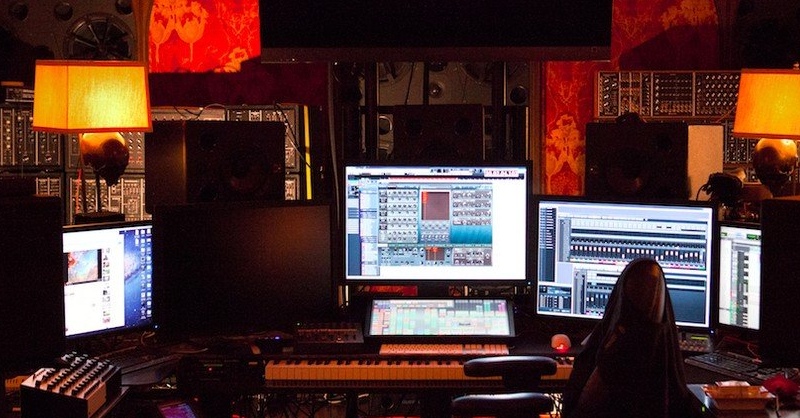An interesting post to be sure. Why pick Hans Zimmer?
As part of my MTEC2013 presentation on film scoring with Kung Fu Panda 2 I am blogging about my studies in film scoring, my students’ studies as well as our successes. Nothing makes me more excited than when a student of mine succeeds above and beyond their own expectations. The way Hans Zimmer comes into this is just part of the story.
Last MTEC conference in 2011 I presented on film scoring with Kung Fu Panda. This had a Booklet with Video resource and was mainly developed for my students at the time to create foley SFX and to compose film music within Garageband. Version 2.0 is now about to be presented on and so this post will contain a small journey through film music activities for your classrooms.
Entering film scoring competitions
Some students and I entered the Tropscore 2013 Film Composition competition. I am so glad to say one of my students was shortlisted this year because of his excellent score and approach to composition.
This was the result of studying film composers and going through transcriptions and how to sequence material in Logic etc. I asked the student to do a write-up of his process which you can find here, it is great to see how our students are making music outside of the classroom.
Podcasting about film music
My students in Music 1 Preliminary course were studying Film, TV & Game score composers.
As part of their studies I had them research and analyse the music of a chosen genre, composer or series of themes. This was the result! An amazing collection of professional standard Podcasts with students analysing the score according to the six concepts of music. Their technical podcasting skills were tested as well as their analytical skills. You will agree that if students understood more about how pieces were composed they themselves could compose great works.
So what do you do next?
Studying film scores
Lastly, and this is where Hans Zimmer gets a look in!
As a music educator it is frustrating that film scores cannot be bought or themes found online as written by the composer. This means I spend time looking for transcriptions or making my own. It helps them understand a scoring process from ideas on paper to sounds from a computer. But there are other ways of composing and designing sounds! Such as Hans’ Inception Score.
I always find it helpful to read from the composer himself and how they are inspired by the projects they work on. Hans Zimmer’s Composing Your Dreams shows how the humblest beginnings can lead to a life-long dream if you are prepared to work at your craft and immerse yourself in it.
So get composing!
Cover image courtesy of: Dave G Kelly

What a great post, Samuel!
I love the examples from your students! Thanks also for posting many great resources. This post and The Happy Prince composition project inspire me to get composing!
With all the devices and apps these days, composing music is possible more than ever.
I will let you know what my students and I come up with.
Thanks for the nudge!
Yoon
Samuel, sorry I didn’t get to catch you at MTEC2013 – by all accounts I missed some great sessions.
Your generosity to fellow educators is second to none, and I’m looking forward to poring over your Evernote resources to poach some pearls! Keep up the good work.
This is a fabulous resource for musicians interested in film scoring. Your students obviously learned a great deal in these lessons. Wow! Thanks for posting.
http://pianosheetmusiconline.com/
What a great blog, and this is a great way of allowing students to learn and express themselves creatively. Hans Zimmer is the one!